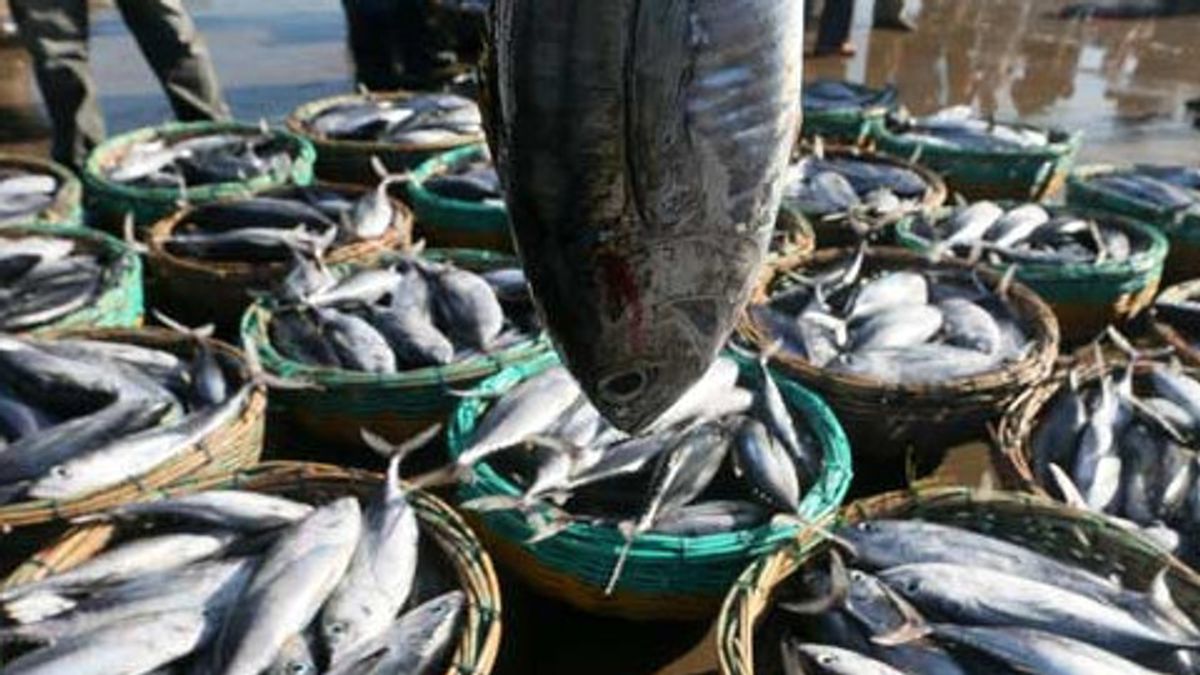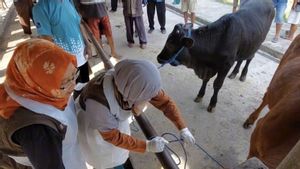AMBON - Coordinating Minister for Human Development and Culture (Menko PMK) Prof Muhadjir Effendy, encourages people in Maluku Province to increase the consumption of fresh fish, especially for children, as an effort to prevent and accelerate stunting reduction.
"Ironically, Ambon still has stunting because there are many fish. Because fish consumption is the main supporting factor for stunting. For the reduction in stunting that is needed, the intake is mainly animal protein. Deep sea fish is fresh," he said, quoted by ANTARA, Thursday, March 9.
He said that in Maluku Province alone there are six districts above the average prevalence of Maluku stunting toddlers. A total of five other regencies/cities are below the average number of provinces.
The percentage three districts in this activity are South Buru Regency, which is the area with the highest prevalence of stunting toddlers in Maluku in 2022, reaching 41.6 percent. This figure is up 2.5 points from 2021 which is 39.1 percent
Then the Tanimbar Islands Regency which ranks second in the area with the highest stunting prevalence is 31.5 percent and the Aru Islands Regency which occupies the third position in stunting prevalence is 28.1 percent in Maluku Province.
In addition, the Coordinating Minister for Human Development and Culture also asked the district government (Pemkab) and the city government (Pemkot) in Maluku to reactivate the posyandu.
"Seram Regency has a posyandu that is no longer active, please reactivate and propose to get an anthropometric from the Ministry of Health. For training costs, whether it can be from the Ministry of Health's budget, or taken from the BKKBN operations or I ask the governor to finance the training of PKK driving cadres, midwives, family assistants in each village so that they can use an anthropometric measurements," said Muhadjir Effendy.
Meanwhile, the Maluku Regional Secretary, Sadali Ie, expressed his gratitude and gave his appreciation to the Coordinating Minister for Human Development and Culture and the team, who have paid attention to the Maluku Province, and also explained the conditions related to the acceleration of stunting reduction and poverty management activities in this area.
"Geographically Maluku is an Archipelago Province consisting of 1,340 islands, with an area of 712,498 km2 which is dominated by 92.4 percent of the sea, namely 658,313 km2, and only 7.6 percent of the land area or 54,185 km2," he said.
With a population of 1.8 million people spread across 9 districts and 2 cities, where based on the results of Basic Health Research (Riskesdas) and the Indonesian Nutrition Status Survey (SSGI), stunting prevalence showed a significant decline, namely in 2018 stunting in Maluku reached 34.1 percent, in 2021 it fell to 28.7 percent and in 2022 it fell to 26.1 percent, said Sadali Ie.
The English, Chinese, Japanese, Arabic, and French versions are automatically generated by the AI. So there may still be inaccuracies in translating, please always see Indonesian as our main language. (system supported by DigitalSiber.id)













